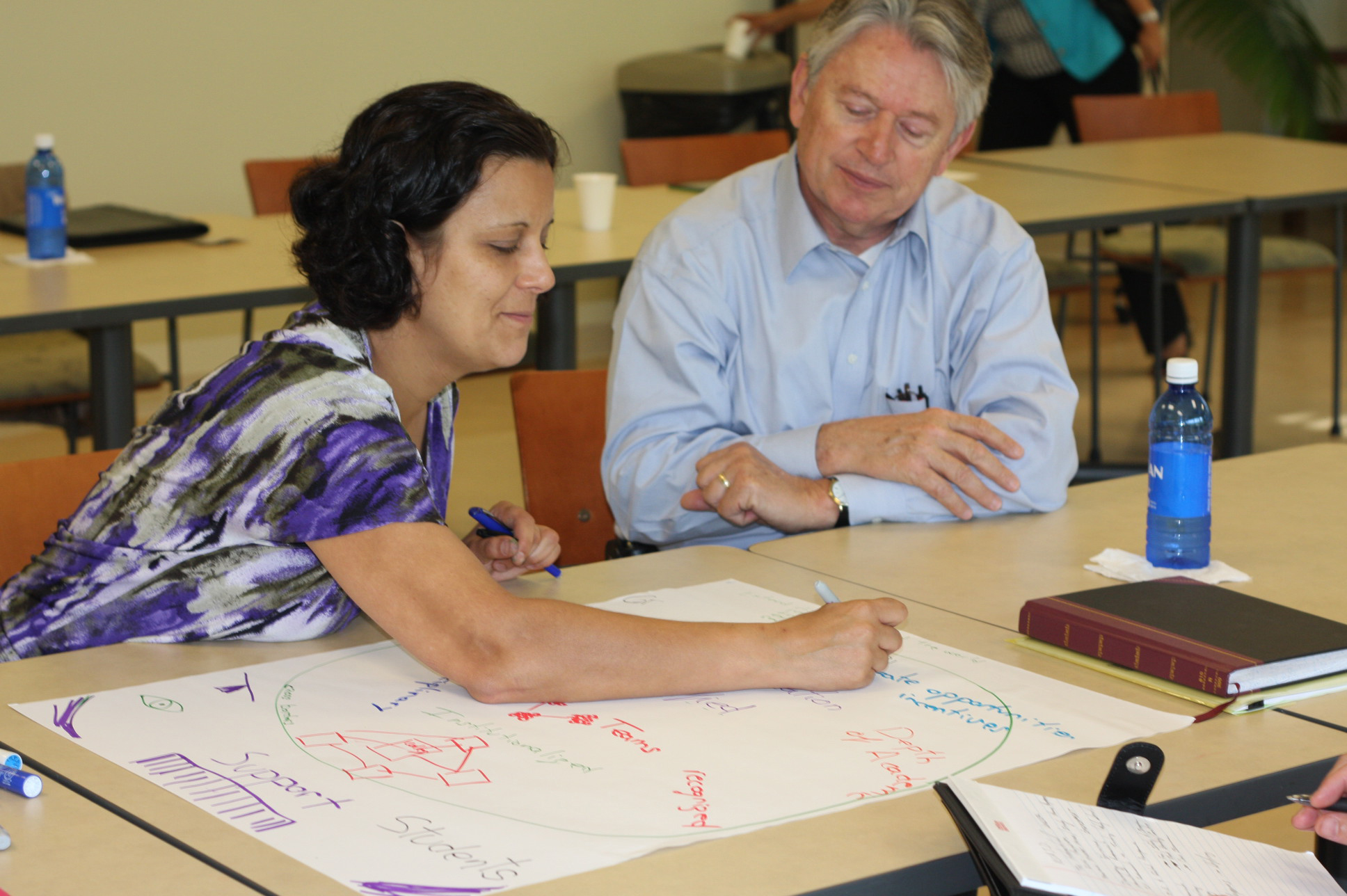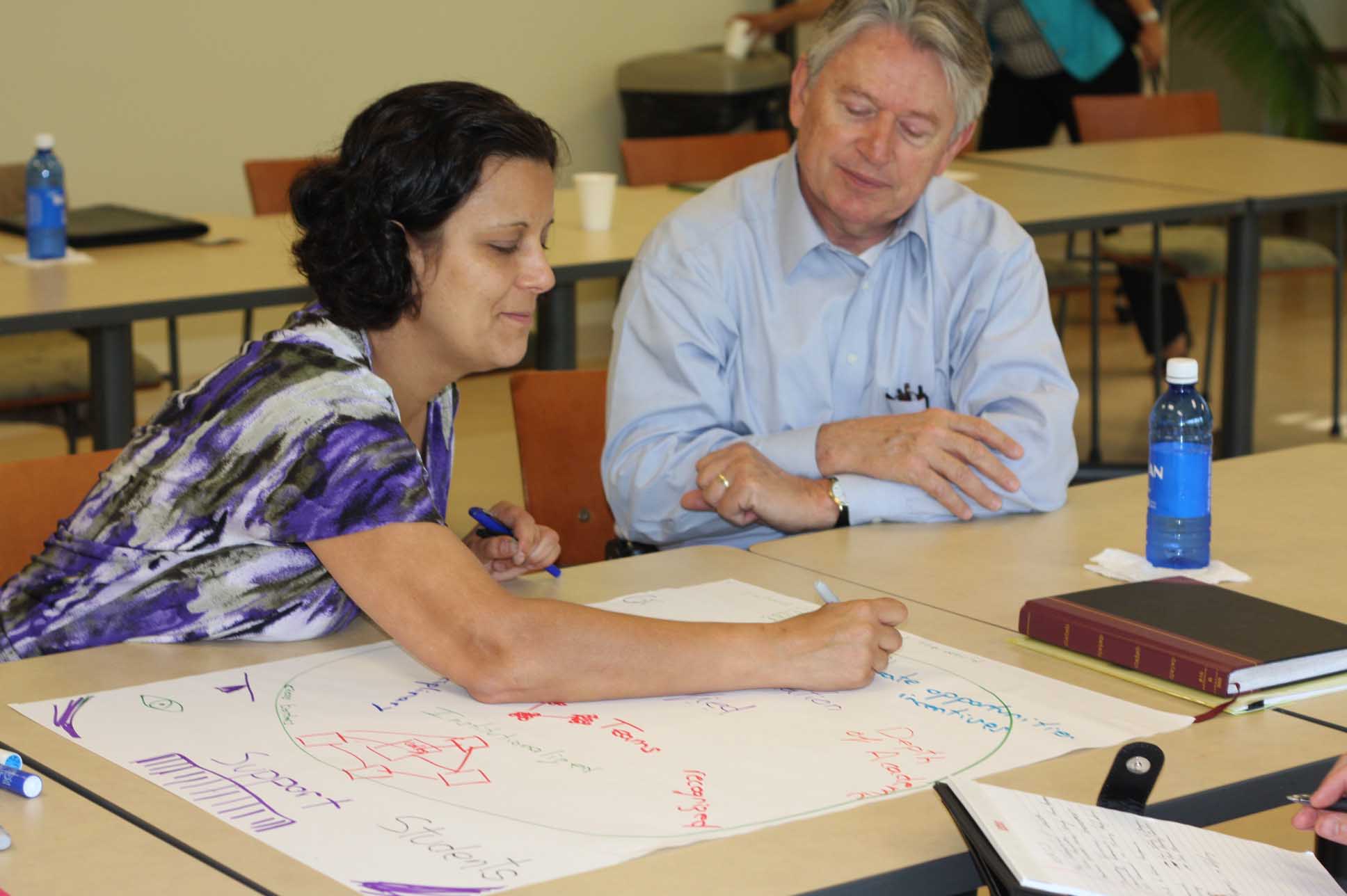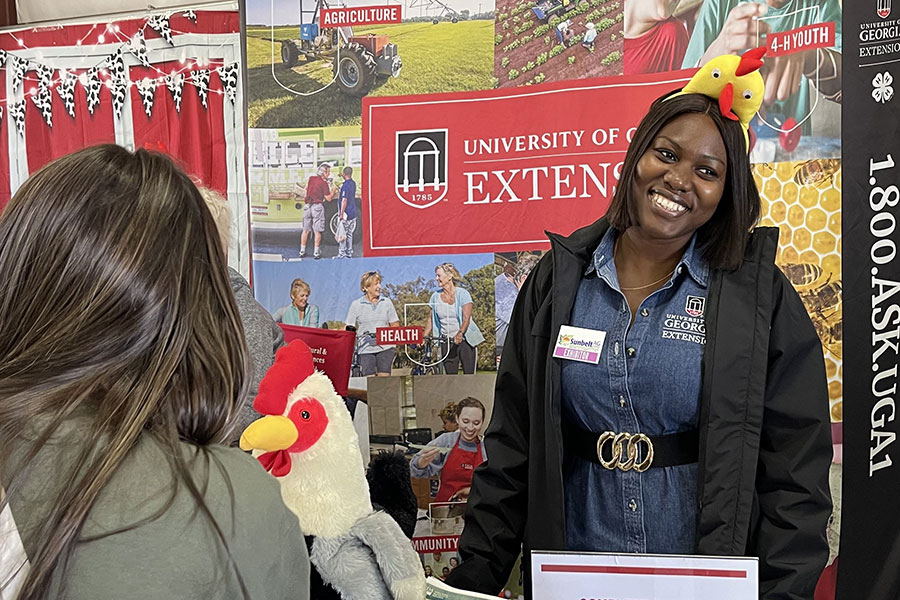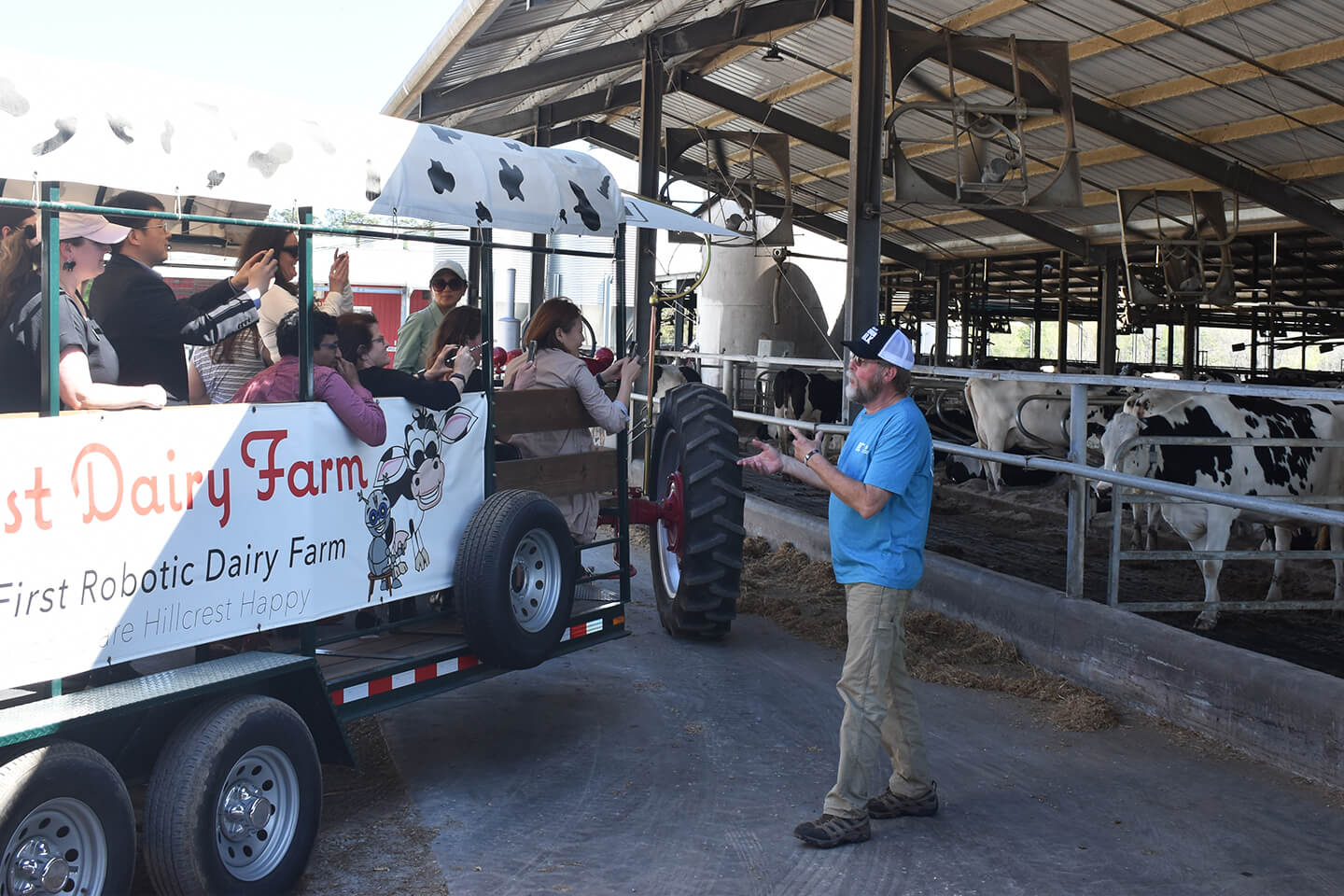Within the next decade the College of Agricultural and Environmental Sciences Office of Global Programs will be recognized among land grant institutions for the depth, diversity and quality of its international engagement. This is the vision that came out of the office’s strategic planning meeting held on June 19 at the State Botanical Gardens of Georgia.
The Office of Global Programs administrators worked with more than 20 stakeholders from the University of Georgia and other institutions to develop this vision with help from facilitators from the UGA J.W. Fanning Institute for Leadership.
“I was really pleased with the quality of participation by high-level UGA faculty and administrators as well as external advisors,” said Amrit Bart, director of the Office of Global Programs. “Clearly, ‘internationalization’ and ‘globalization’ of our campus and our state is important in the minds of our stakeholders.”
Participants took part in visioning activities and discussions regarding what the Office of Global Programs has done well in the past, what it needs to continue doing and what they need to do to achieve their vision.
“The question is not only where do we want the office to go, but also the college,” said Dean J. Scott Angle, of CAES. “We have aspirations to ramp up our global portfolio.”
One topic that continually arose was the desire for CAES Global Programs to be recognized as a high quality support system that encourages, facilitates and provides guidance for faculty and student to engage globally.
“You want to have an office that helps unify efforts, and offices and people from across the college, things that make it a go-to service,” said Maria Navarro, associate professor in the Department of Agricultural Leadership, Education and Communication.
To this end the office came up with a strategic plan that includes these items:
- Enhance the quality of international learning through international research, outreach and expanded linkages to reduce institutional obstacles.
- Increase visibility, advocacy and communication internally and externally.
- Strengthen the Office of Global Programs and let others know the quality of its support services.
- Seek additional resources (internally and externally) to meet the increasing demand of Global Programs’ services.
“Being able to provide students and faculty the ability to see the world with global perspective is fundamental to higher education of 21st century," Bart said. "This is intricately linked to university ranking, students landing jobs in internationally competitive markets, and diversifying faculty and students within a university campus. Internationalization of our campus will not happen by wishing; concrete and decisive action need to follow to ensure we are meeting the UGA 2020 strategy on internationalization. Strategic planning of our Global Programs office is one of the critical steps toward improving CAES and UGA's position among high ranked universities with well established and successful global programs."
For more information about the Office of Global Programs visit www.global.uga.edu.








